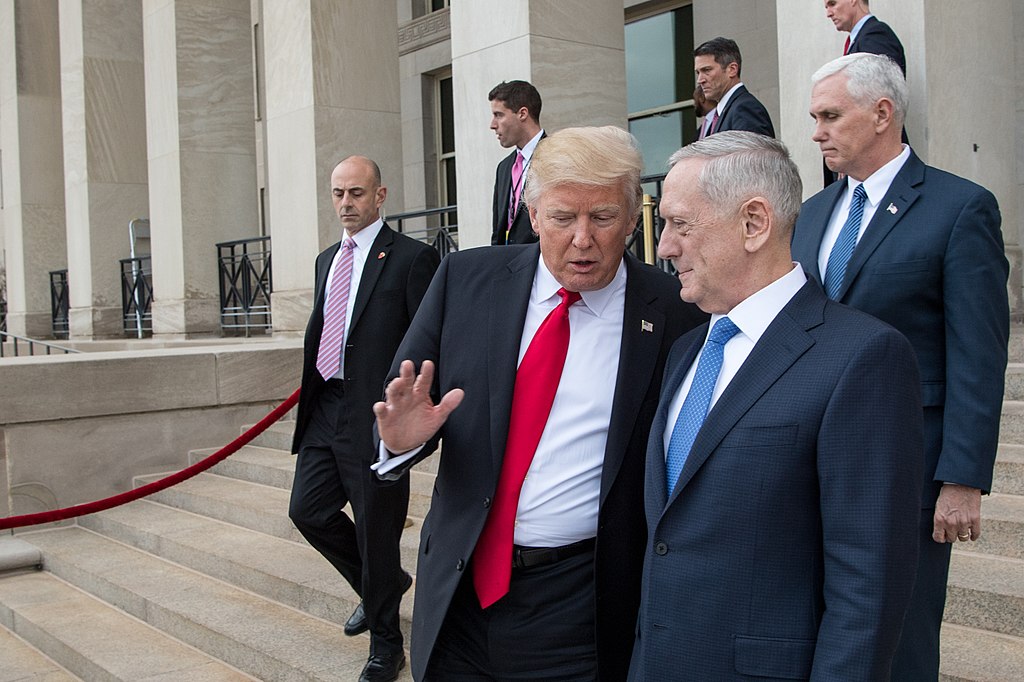A Rorschach Test for Civil-Military Relations
Earlier this week, I wrote in Slate about how America’s military leaders have seemingly improvised a new norm of civil-military relations in response to President Donald Trump. The latest proving ground for this norm is the debate over how to treat transgender recruits and servicemembers as the Trump administration battles in the courts to uphold Trump’s order banning such individuals from the service. Under this new norm:

Published by The Lawfare Institute
in Cooperation With

Earlier this week, I wrote in Slate about how America’s military leaders have seemingly improvised a new norm of civil-military relations in response to President Donald Trump. The latest proving ground for this norm is the debate over how to treat transgender recruits and servicemembers as the Trump administration battles in the courts to uphold Trump’s order banning such individuals from the service. Under this new norm:
In response to Trump, the military’s leadership has improvised a new norm of civil-military relations: something in between a yes and a no that doesn’t amount to insubordination but does help modulate Trump’s excesses. ... Call it respectful disobedience or selective engagement or lawful resistance or some other euphemism—but it’s clear that military leaders have found a formula for saluting their commander in chief while keeping his worst excesses at bay.
Assuming for the sake of argument that this observation is true, we might ask whether or not it is a good thing. Although we might praise generals and admirals for upholding certain values against a president we dislike, we might feel very differently if these officers act against values or positions or leaders we do like. The behavior of generals and admirals within our political system serves as a kind of Rorschach test: We see what we want to see, based on our own biases and ideologies.
Recent history offer many case studies for consideration. Less than a generation ago, when today’s generals were mere junior officers, then-Gen. Colin Powell vocally opposed then-President Bill Clinton when he wanted to open the ranks to gay servicemembers. The president and his generals clashed openly on the issue, with Congress ultimately taking the generals’ side but brokering a compromise that allowed gay troops to serve in silence under the “don’t ask, don’t tell, don’t pursue” policy that was carved into statute. This statute was repealed in 2010, in no small measure because the military leadership switched positions on the issue, driven by social change within the ranks and the realities of service and sacrifice by gay troops during America’s longest war. On this issue, military leaders marched neither in step with their political masters nor with public opinion, at least not until the very end.
A more recent case study (which I experienced firsthand as a senior Pentagon official) concerns counterterrorism operations and what to do about detainees captured by military forces or the intelligence community. Military leaders never fully embraced the aggressive policies pushed by the early Bush administration, and they helped nudge policy towards moderation, assisted by several prominent court cases and changes of key civilian leaders. After President Barack Obama took office however, the civil-military dialogue shifted. In 2009, civilians like me were asking military leaders how to close Guantanamo and how best future detainees could be transferred to federal courts for prosecution. This elicited no small amount of pushback from military leaders, who urged caution and careful movement at each step of the effort to close Guantanamo and shift U.S. counterterror policy. President Obama’s major counterterror policy speeches, in May 2009 and in May 2013, reflect this tension. Here again, military leaders marched slightly out-of-step with two successive administrations, in varying degrees over 15 years of war. Where you stood on the issues and to which party you belonged, probably shaped your opinion of these civil-military skirmishes.
Comes now President Trump, with his bombastic disrespect for civil-military norms and democratic institutions. How, exactly, should the service chiefs to respond in the wake of an event like Charlottesville, when the president seemingly endorsed violent protest activity by neo-Nazis? The services are less than a generation removed from purging extremism in their own ranks; speaking out after Charlottesville was an easy choice. One after the other, each service chief took to Twitter to denounce racism and extremism in varying terms. That they did so was unremarkable given the need to maintain good order and discipline in the ranks. What was remarkable was the degree to which the chiefs’ statements differed from those of their Commander in Chief.
It’s easy to line up with the service chiefs and cheer them when the subject is Charlottesville; it’s similarly easy for me, as a moderate Democrat, to support the chiefs over the president when the subject is allowing transgender troops to serve. The harder cases come when we disagree with military leaders or we think they should behave differently within the civil-military ecosystem




